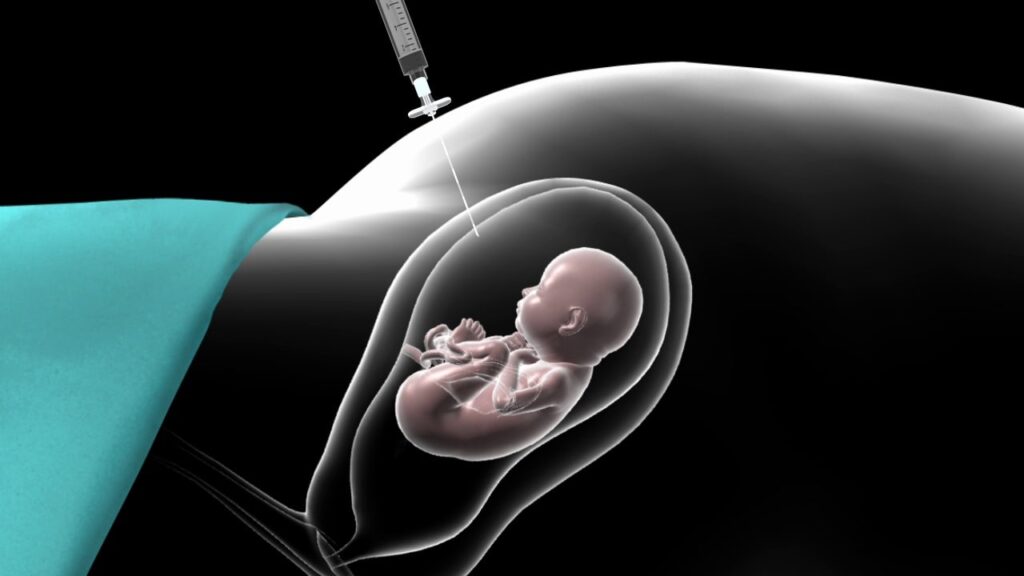- Home
- Chromosome Test
- Amniocentesis Test
Amniocentesis Test - Prenatal Genetic Testing
Amniocentesis is a prenatal test in which a small amount of amniotic fluid is removed from the sac surrounding the fetus for testing. The sample of amniotic fluid (less than one ounce) is removed through a fine needle inserted into the uterus through the abdomen, under ultrasound guidance.

Reasons to perform the procedure:
» Following a positive prenatal screening test like Dual, Quadruple Marker or NIPT (Non-Invasive prenatal testing).
» History of having a previous baby with a chromosomal condition like Down syndrome
» Family history/ parents affected with a specific genetic condition
» High maternal age: >35 yrs
» To evaluate the baby for an infection
» Therapeutic, in case of polyhydramnios, to reduce the volume of amniotic fluid.
Optimal time for the procedure:
» 16-18 weeks is the preferred time.
How to prepare:
» Disclose and discuss all medications before going for the procedure. Some medications might have to be discontinued before the procedure.
» Consider asking someone to accompany you to the appointment for emotional support and to drive you back.
» You will need to sign a consent form before the procedure.

What to expect after the procedure:
» Transient uterine cramping, spotting and vaginal loss of a few drops of amniotic fluid can occur immediately after the procedure.
» However, seek medical advice if you have persistent fluid leaking from the vagina, heavy vaginal bleeding, severe abdominal pain or fever.
Possible complications:
» Miscarriage (1 in 300 to 1 in 500). It usually occurs within the first 5 days of the procedure
» Risk is higher if
› The procedure is done before 15 weeks of pregnancy
› BMI>40kg/m2
› Previous episode of vaginal bleeding during current pregnancy
› History of previous spontaneous abortions
» Leaking amniotic fluid: Rare
» Infection: Rare
» Infection transmission from mother to baby (If the mother has Hepatitis C or Toxoplasmosis)
» Needle injury: Rare
» cramps
» a small amount of vaginal bleeding
» amniotic fluid that leaks out of the body (this is rare)
» uterine infection (also rare)
When can you expect the results:
» 2-3 weeks for karyotyping
» 3-5 days for QF-PCR
What can an amniocentesis test detect?
» Genetic disorders
» Birth differences
» Your baby’s lung development
» Other health concerns

